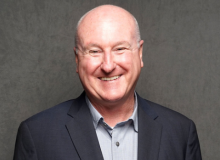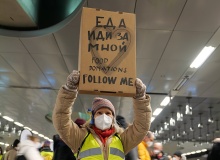

.jpg)
So much has changed since the last European Parliament election in 2019, but one thing that hasn’t changed is the influence of nationalism. If anything, it is a bigger issue in 2024 than it was in 2019 or back in 2010.

“Polycentric mission leadership is a collaborative, communal leadership empowering multiple centers of influence and a diverse array of leaders to meet today's challenges“.

Europe is polycentric, not only on the cultural but also on the spiritual and religious level.

Let’s continue to examine our desires to do mission, explore other ways people use to serve, listen more to each other and enjoy the mission together.

Mission will be polycentric when the power structures shift and African, Asian, and Latin American Christians can participate in their own ways, with their own resources.

This article seeks to explore the meaning and use of the word polycentric in Christian mission studies today and consider its implications for mission in Europe.

Bruce Nicholls gives a rapid overview of the issue of climate change and then concentrates on the Christian response.

A study on how Evangelical Alliance websites across Europe adress climate change, climate crisis and creation care.

Evangelical churches are more practical than reflective on pressing issues such as the energy crisis or the impact on the quality of life due to limited living resources.
.jpg)
Who we are becoming will determine how we are able or unable to deal with the crises in Europe.

It is relatively easy to achieve one of the three, but a response that speaks to the true influence of lives transformed by Jesus should touch all three.

Energy, inflation, environmental degradation and the call for simpler living.

Without the constant renewal of Christ’s peace in our hearts, our emphasis on simple living may be purely a matter of economics and even politics.

Evangelical churches in Russia have been praying for peace and ministering to those in need right now for 6 months in Ukrainian cities. By Pavel Kolesnikov.

There are opportunities for churches as they welcome Ukrainians into their midst, many of whom come from evangelical backgrounds.

The Church in Ukraine needs to respond to the emotional and spiritual needs of its people as the ongoing extension of the mission of God. An aticle by Kristy Williams, Ruslan Maliuta and Yuriy Kulakevych.

The shared view of Russia as a lasting potential threat made CEE countries sympathise with Ukraine, especially since 2014. An article by Rafał Piekarski and Barbora Filipová.
.jpg)
In Europe, we have become used to the arrival of asylum seekers and refugees, most notably when some 2 million people fleeing the conflicts in Syria and Afghanistan. Yet the Ukraine migration crisis has been different.

The heart of the Ukranian Christian church missionary enterprise is to cross borders instead of erecting them and we in the rest of Europe must support them.

The presence of borders invites us into a multi-tribal fellowship in which we can share whatever God has given us.

We need to learn to appreciate the richness of the language communities in our churches and neighbourhoods, and to build bridges over those borders.

Shibboleth describes the cultural markers which separate “Us” from “Them”. How do the missionally-minded navigate this landscape of shibboleths?

The challenge for the peoples of Europe today is to find the balance between protecting borders and open borders.
.jpg)
Different voices open our hearts and help us overcome little biases that might be lodged in our experience and church traditions.

The muted voices of the church in Europe were heard more prominently in Lausanne Europe 20/21 than at any other European evangelical gathering, but we still have work to do.

Las opiniones vertidas por nuestros colaboradores se realizan a nivel personal, pudiendo coincidir o no con la postura de la dirección de Protestante Digital.